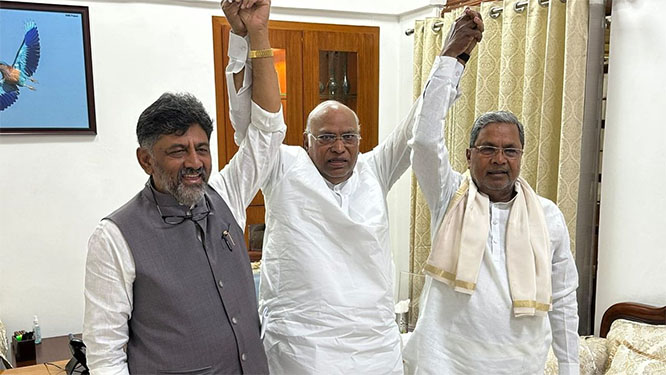New Delhi, Apr 23: Prime Minister Narendra Modi on Sunday warned all elected members and ministers of the BJP to steer clear of making controversial statements to the media.
He made the comments during an interaction with the party's MPs, MLAs and other representatives through the NaMo App. "We commit mistakes and give masala to media. The moment we see a camera, we jump to make a statement as if we are great social scientists or experts ... and then these ill-informed statements are used by media. It is not the media's fault," he said.
The stern message comes amidst outrage over a spate of child rapes. BJP leaders have not helped matters by making controversial statements and being seen as soft on the accused. Even on Sunday, union minister Santosh Gangwar stirred a row by saying that one "should not make such a big deal if one or two such cases are reported from such a huge country".
The PM said that the levers of governance should be moved for issues of larger public interest, keeping the principle of sarvajan hitaaya, sarvajan sukhaaya [for everyone’s benefit and happiness] rather than to push individual interests.
“If you push individual interests you will find the levers of governance stuck, whereas it will move for larger interests,” he told his party colleagues.
He said that only designated spokespersons should comment on matters concerning the party. “If everyone comments on everything then the conversation around subjects change, this harms the country, the party and hurts our own personal image.”
“In the last few years I saw that in the 16th Lok Sabha there were eight to 10 MPs from our party who had this habit but after I spoke to them they desisted from it and the party was spared any humiliation in public as a result,” he added.
A BJP release quoted Modi as saying that the party has managed to win over support of the rural masses as he also made a reference to the party's win in local polls in Jharkhand.
He also asked MPs and MLAs to take a resolve to solve four to five problems of the villages falling in their respective constituencies as he issued them several instructions to observe the ongoing 'Gram Swaraj' campaign between April 14 and May 5.
The BJP has not come to power due to mistakes of the Congress but because it has always stayed connected to the people and now their job in power is to solve problems facing the masses, Modi said.
The perception about the BJP that it was a party of a particular class and urban centres or north India has changed and it has emerged as an "all-touching and all-inclusive" organisation, he said."Our mass base is increasing among all sections of the society and this is our biggest asset," the party statement quoted him as saying.
Modi asked party leaders and workers to use technology a lot to link villages to development works.
Taking on the criticism that his government had not created enough jobs, he said lifestyle and sources of livelihood have changed in villages as he emphasised his government's efforts to boost self-employment. Those doing politics over employment figure may do so but the government will provide the masses with self-employment opportunities by developing skills of the youth, he said.
Modi will also speak to the party workers of the poll-bound Karnataka through the video bridge technology on April 26, the statement said.







Comments
Add new comment